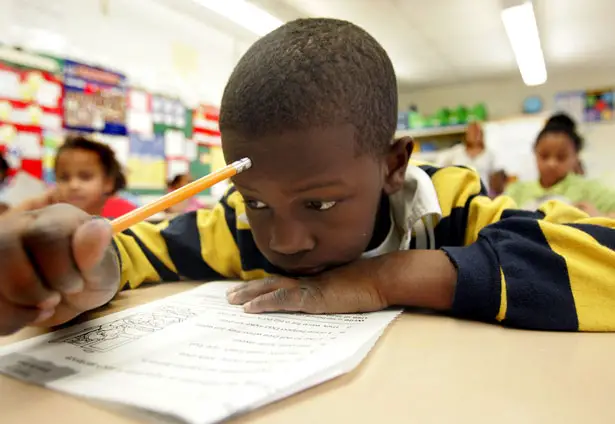For the student pacing in front of me, unable to focus on the chemistry book because he was busy contemplating the stars, school was increasingly frustrating. And as a teacher, it’s impossible for me to tell him, with a straight face, that it’s all gonna be worth it.
For many kids, school works. There are many kids who come into the school and find a way to fit in. Some excel at academics. These are the kids who have no problem sitting in a desk for upwards of ninety minutes without using their ubiquitous smart phones or who can manage to balance their Candy Crush and Snap Chat addictions with note-taking responsibilities. Some excel at sports or the arts. These are the kids who seem to have every school pride t-shirt, be in every yearbook photo, and are always hanging up posters for this thing or that event. Some kids are social butterflies – they can flit from clique to clique and they are always ready for some quick gossip to let me know what’s “really going on with so and so today.” And some really amazing kids manage to do it all and somehow make it look easy while they’re doing it.
Yet there are some kids for whom this model of education doesn’t work. These are kids for whom sitting down for ten minutes at a time might be a struggle. These are kids for whom school activities hold no appeal. These are the kids who are so busy handling adult tasks that they are too busy for the adolescent business usually reserved for bildungsroman.
And then there’s Coby who is sweet, brilliant, curious, inquisitive, funny, unique, full of personality and altogether awful at “doing school”. But does this mean that the kids for whom school doesn’t work are destined to be life failures? (Nah.) Does this mean that they are not going to grow up and find just the right job for them? (Nope.) Does this mean they even need school? (Well. Yes. Of course.)
I mean, what is school for anyway?
If we, as a society, have decided that it is the job of the public education system to churn out individuals who are well suited to fulfilling the economic, social, and civic needs of maintaining the status quo then we’re doing an okay job. Our very model of education is based on the needs of large industry in the 19th and 20th centuries. Kids are shuffled from class to class like so many raw materials on an assembly line. In the English class they get this bit of knowledge, in the Math class they get a tune-up, and in the end the number-of-credits checker is there to make sure that the cap is screwed on just right. No cap, then no cap…or gown.
If we, as a society, have decided that it is the job of public education to give every child the foundational knowledge, skills, and opportunity to achieve greatness – well, many in education are actually working towards that. Schools are having discussions about what it means to have a more holistic education that prepares kids for what they might encounter instead of what we have encountered. The only problem is, many schools are still talking about “21st Century Skills” and the 21st Century is already a decade old. In the meantime, a horde of standardized testing doesn’t seem to help with any of this. It’s getting better, with people advocating testing reform that more adequately, accurately, and authentically measures student achievement – but let’s face it, it’s not quite there yet.
As a public school teacher, I believe that it is my responsibility to help prepare my students to be the best whoevers they are going to be. And in a world where facts need not be memorized, it seems to me that the best whoevers are going to be critical, creative, reflective, and analytical individuals. These whoevers aren’t going to compartmentalize their knowledge, but are going to be able to connect ideas. And though these whoevers may not be able to sit in a desk for very long, they will be able to find success in their own way.
And there are many adults in our society who recognize this fact and are taking matters into their own hands. I’ve seen some of the amazing work that some moms and dads are doing with homeschooling (or even unschooling) their children. I’ve had the privilege of teaching some of these students, who come to school self-aware, secure, and, due to the limitless nature of highly individualized instruction, miles ahead of their age-mates. I know of private schools, charter schools, small schools, new schools, and virtual schools, with shiny success stories about the different approaches to education that work for the children attending them.
But not everyone can afford to homeschool their children.
Not all private schools are stellar – in fact, some are downright dangerous.
And “more parent choice” in education isn’t always the best solution – as the great debate over “Opportunity Scholarships” and charter school caps in my home state will attest. We need opportunities, alternatives, and options for all the Cobies – not just the kids who can afford it and not just the kids whose parents are involved. And until we recognize that all children need equitable, accessible, education, we’re going to continue to fail Coby.
Alicia is a mom and public school teacher in North Carolina. She blogs at alburnet.wordpress.com.


